-
Asked by seat495saw on 8 Nov 2023. This question was also asked by than495saw, kept495saw, Steffan R, MellyB, text495yep.0
Question: Who or what was it that made you want to be a scientist and why?
- Keywords:
-
Karen Edwards answered on 8 Nov 2023:
I was living and working as an actuary in Bermuda, when I decided I wanted a career change. I knew I wanted to do something I was both passionate about and would enjoy so spent a fair bit of time doing research before deciding on oceanography. I took time off work and took a summer class to decide if I could be a student again and then started applying for PhD programmes.
-
Tanya Riley answered on 8 Nov 2023:
I was 7years old when I decided to be a marine biologist. It was after watching the film Free Willy I just knew I had to work with marine life to protect them.
-
Benedikte Ranum answered on 8 Nov 2023:
There wasn’t a specific thing that made me want to work in science – more a growing sense that with all the big, urgent issues we’re facing (people and planet), science is the most obvious and effective way to help solve them.
-
Christina Kriaridou answered on 8 Nov 2023:
I always loved animals and nature. When I was little I wanted to travel the world and explore different places (like people do in documentaries) or become a vet. The first person who inspired me was my Biology teacher at school. After completing school, I pursued a degree in Biology at the university and since then I really love science and genetics!
-
Jonathan Teague answered on 8 Nov 2023:
I always liked visiting aquariums as a kid and dragged my parents to lots of them, so I knew I wanted to be a marine biologist. But I realised at A-level perhaps biology wasn’t for me so I did marine science and found a niche in marine technology.
-
Anton Edwards answered on 8 Nov 2023:
When I was 10 I loved to read about the planets. I learned all the names and how far they were from the sun. I thought it was really interesting to know how hot and cold they were. I imagine all sorts of adventures cruising round the solar system in a spaceship. Then when I was about 12 I discovered that I could do the maths that I was taught and that it all made sense. We had teachers who were really enthusiastic about making stuff work. All these things made me think it would be adventurous and fun to be a scientist.
I never went to the planets of course, but I have enjoyed learning about our own planet and how things work!
-
James Bron answered on 8 Nov 2023:
I have always enjoyed exploring the world, especially the natural world, and being a scientist is a great way to explore, discover and come up with creative solutions to problems. Many of my relatives are also medical doctors, for example eye doctors and brain surgeons, which often involves research, so that also provided some additional background. I have wanted to be a marine biologist from the age of 5, both because I enjoyed ponds, rockpools and other watery natural environments and because I watched a French scientist / diver / explorer on TV called Jacques Cousteau who filmed the marine environment while diving. I also enjoyed reading about marine science, animals and exploration as a child which probably helped to encourage me to take this route.
-
Clemence Fraslin answered on 9 Nov 2023:
I have always been very curious, asking my parents and teachers a lot of questions about nature and the world. I was really lucky because I lived in a small town and we were always outside exploring. I always found science very interesting, seeing things reacts when you put them together (like pouring lemon juice on cabbage infused water). I was also good in science (maths, biology, chemistry and physics) in school and less good in literature (I have a small dyslexia, I am really bad at spelling which made me feel stupid in school) so I knew a career that involved perfect writing and reading was not for me (although research requires you to write and read a lot, it’s easier and today computers (and colleagues) can correct my bad spelling)
-
Cristina Steliana Mihailovici answered on 9 Nov 2023:
Being creative, I love to contribute with new ideas, to discover, to explore.
-
Amina Moss answered on 9 Nov 2023:
From I was quite little, I always asked questions, and was quite inquisitive. The first Christmas gift I actually remember asking for was a microscope. So my love of science began from the age of 5-7. I grew up near the sea, so marine science was a no-brainer for me. Just like others here, I was drawn to movies that had a water-theme (in love with anything mermaid-related as well). So it was not really a “who” for me, but a “what”.
-
Clare Johnson answered on 9 Nov 2023:
I liked science at school so decided to study environmental science at university. During my time at university I discovered how much we don’t know about the ocean, and that I enjoyed trying to work out what is going on. So I guess I kind of fell in to it. I specifically started to take as many marine science modules as I could at university because of a field trip during my first year. We got to put instruments in to the water off a boat to see how salty the water was. It was great fun so I decided to learn more!
-
Camilla Cassidy answered on 9 Nov 2023:
I really liked the TV show Mythbusters, where people test common myths or sayings to find out if they’re true (like the idea that, if a lift was falling, if you jumped before it hit the bottom, you wouldn’t get hurt – that sort of thing). It really taught me the value of being curious about the world, and working to find ways to test and prove things are true. That’s what being a scientist is all about!
-
Wasseem Emam answered on 9 Nov 2023:
My head of sixth form in England was also head of biology and he convinced me that a career in science was for me
-
Constance Schere answered on 10 Nov 2023:
I decided I wanted to be a scientist in my final year of university, where I was studying for a BA in History. Because I did my undergraduate degree in the US, I was required to take a number of general education modules and elective modules and I ended up taking so many science modules that I was able to transfer into a BSc programme in Biology after I finished my BA. I still love History and my studies gave me certain critical thinking and writing skills that I probably wouldn’t have had gotten in a purely scientific degree. It’s never too late to change your course of study or start a new one!
-
Mimi Asogwa answered on 10 Nov 2023:
I first had an inkling that science was for me in secondary school. I particularly enjoyed Biology lessons and practical’s and went on to study Microbiology in University. I am now a Molecular Microbiologist and have enjoyed my career journey so far
-
Stephanie Horn answered on 16 Nov 2023:
I’ve always loved science, even as a kid, and the more I learnt, the more I realised there was soooo much I didn’t know. I want to see and do and know as much as I can before I get too old!
-
Jake Norton answered on 21 Nov 2023:
I spent time off after sixth form to travel south east Asia, and this opened my eyes to the world of marine science, and the many issues the oceans face. This inspired me to go to university which I probably wouldn’t have otherwise. I can not recommend taking time off before going to university enough….take time to work and travel if you can, you’ll likely change the course you would of originally chosen.
My undergraduate lecturer was probably the person who most inspired me to continue onto a PhD once at university.
Related Questions
what challenges do u face when working?
What is aquaculture?
when did you get into oceangraphy
do you like your job
Hello. I was wondering what is the best thing you have seen doing your job.
what's the coolest thing you have done
Out of ten how much do you like marine science
Do you work in just Bahamas or do you work in multiple places
how goofy are u
What was your dream job when you were a kid
Latest Questions
-
If you had to write a story, what marine creatures would you include in it?
-
how do you manage pathogen transmission between farmed and native populations? is there a risk of introducing a
-
do you try to maintain genetic diversity in farmed populations?
-
Have you seen a shark in the wild and if so how do they react to humans in their habitat
-
What do you feel is the best thing you’ve learnt in science?
-
what challenges do u face when working? (1 Comment)
-
what life lessons have you learned whilst working there?
-
What is aquaculture?
-
How do you know where to find the Harbour Porpoises in the sea or ocean?
-
is it fun diving
Latest Comments
-
what challenges do u face when working? (1 comment)
-
You are my favourite scientist and I would like to know how long have been a scientist? (1 comment)
-
how long have you been doing this (3 comments)
-
What kind of experiments do you like to do in science class? (2 comments)
-
when did you get into oceangraphy (3 comments)

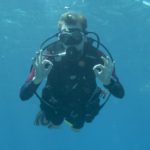
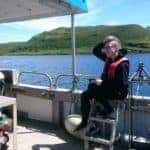
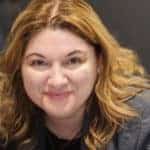
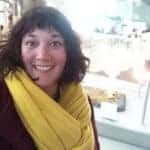
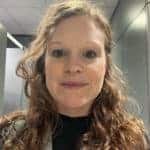
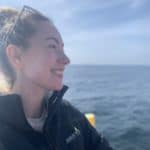
Comments